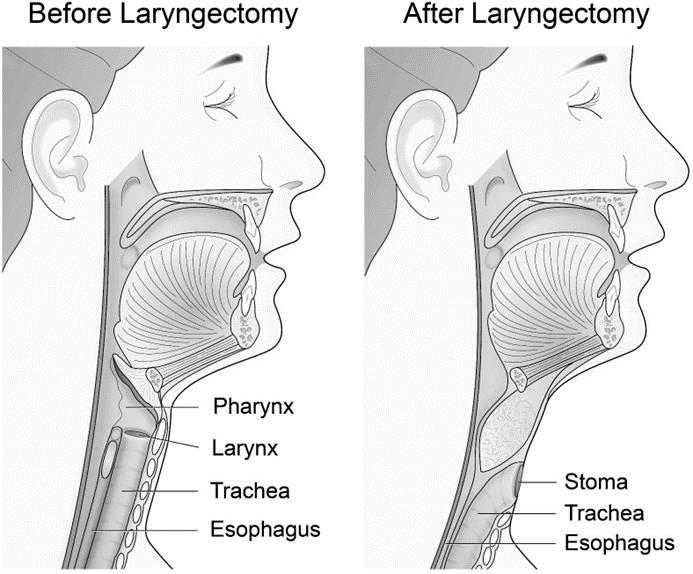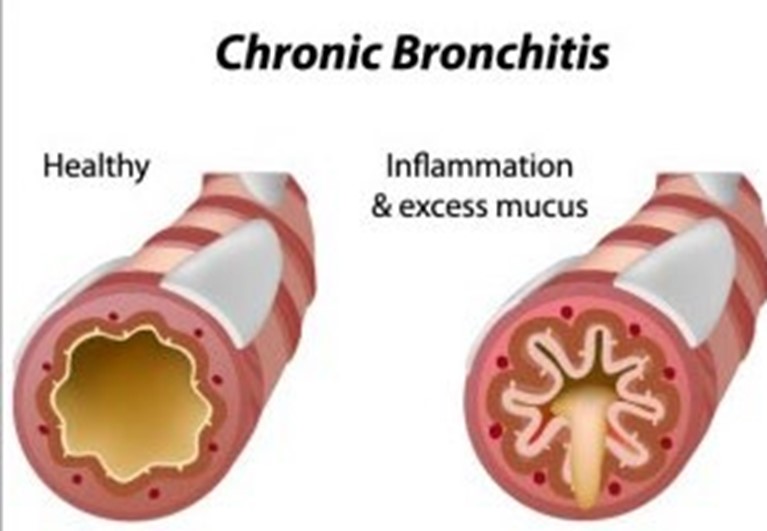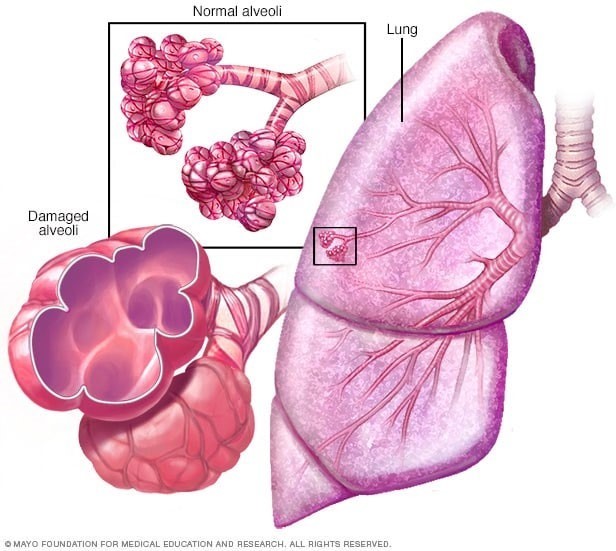A nurse is caring for a client following a total laryngectomy. Which of the following is the priority observation in the client's care?
Patency of the intravenous line.
Need for suctioning.
Integrity of the dressing.
Level of pain.
The Correct Answer is B
Suctioning is the priority observation in the client's care, as it prevents airway obstruction and respiratory distress caused by blood, mucus, or secretions. The client has a permanent tracheostomy and cannot cough or clear the airway effectively. The nurse should assess the need for suctioning frequently and perform it as needed, using sterile technique and maintaining oxygenation.
a) Patency of the intravenous line is important, but not the priority observation in the client's care. The intravenous line provides fluids, electrolytes, and medications to the client, but it does not affect the airway patency or oxygenation.
c) Integrity of the dressing is important, but not the priority observation in the client's care. The dressing protects the surgical site from infection and bleeding, but it does not affect the airway patency or oxygenation.
d) Level of pain is important, but not the priority observation in the client's care. The pain can be managed with analgesics and nonpharmacological measures, but it does not affect the airway patency or oxygenation.

Nursing Test Bank
Naxlex Comprehensive Predictor Exams
Related Questions
Correct Answer is D
Explanation
Smoking cessation is the most effective way to prevent chronic bronchitis, which is a type of chronic obstructive pulmonary disease (COPD) characterized by inflammation and excess mucus production in the
bronchi. Smoking is the main cause of chronic bronchitis, as it damages the cilia and mucous membranes of the airways, leading to chronic cough, sputum, and infection. Quitting smoking can reduce the risk of developing or worsening chronic bronchitis and improve lung function and quality of life.
a) Regular moderate exercise is beneficial for preventing chronic bronchitis, but not as effective as smoking cessation. Exercise can improve cardiovascular and respiratory health, increase oxygen delivery to the tissues, and enhance immune function. However, exercise alone cannot reverse the damage caused by smoking or prevent further deterioration of the airways.
b) Maintenance of ideal weight is beneficial for preventing chronic bronchitis, but not as effective as smoking cessation. Maintaining a healthy weight can reduce the workload on the heart and lungs, prevent obesity-related complications, and improve self-esteem and well-being. However, weight management alone cannot restore the normal structure and function of the airways or prevent chronic inflammation and mucus production.
c) Annual influenza immunization is beneficial for preventing chronic bronchitis, but not as effective as smoking cessation. Influenza immunization can protect against viral infections that can trigger or exacerbate chronic bronchitis symptoms, such as fever, cough, wheezes, and dyspnea. However, influenza immunization cannot prevent other causes of chronic bronchitis, such as bacterial infections, environmental pollutants, or genetic factors.

Correct Answer is ["A","B","D"]
Explanation
These findings are expected to be assessed in a client who has emphysema, which is a type of chronic obstructive pulmonary disease (COPD) characterized by destruction and enlargement of alveoli, loss of elastic recoil, and air trapping. These changes impair gas exchange and oxygenation, leading to chronic hypoxia and hypercapnia.
a) Dyspnea, or difficulty breathing, is a common symptom of emphysema, as the client has reduced lung capacity and increased work of breathing. Dyspnea may be worse with exertion, stress, or infection, and may cause anxiety and fatigue. The nurse should monitor the client's respiratory rate, rhythm, depth, and effort, and provide oxygen therapy as prescribed.
b) Barrel chest, or increased anteroposterior diameter of the chest, is a physical sign of emphysema, as the client has chronic air trapping and hyperinflation of the lungs. Barrel chest may also cause kyphosis, or curvature of the spine, and reduced chest wall movement. The nurse should measure the client's chest circumference and observe for any deformities or asymmetry.
d) Clubbing of the fingers, or enlargement and rounding of the nail beds, is a late sign of emphysema, as the client has chronic hypoxia and tissue ischemia. Clubbing may also affect the toes and ears, and may indicate pulmonary or cardiac disease. The nurse should inspect the client's nails for shape, color, angle, and capillary refill.
c) Deep respirations are not expected to be assessed in a client who has emphysema, as the client has shallow and rapid breathing due to air trapping and reduced lung compliance. Deep respirations may indicate other conditions, such as metabolic acidosis or anxiety. The nurse should assess the client's arterial blood gas levels and provide reassurance and relaxation techniques as needed.
e) Bradycardia, or slow heart rate, is not expected to be assessed in a client who has emphysema, as the client has tachycardia or normal heart rate due to hypoxia and increased sympathetic stimulation. Bradycardia may indicate other conditions, such as medication side effects, vagal stimulation, or heart block. The nurse should monitor the client's pulse rate, rhythm, quality, and electrocardiogram as indicated.

Whether you are a student looking to ace your exams or a practicing nurse seeking to enhance your expertise , our nursing education contents will empower you with the confidence and competence to make a difference in the lives of patients and become a respected leader in the healthcare field.
Visit Naxlex, invest in your future and unlock endless possibilities with our unparalleled nursing education contents today
Report Wrong Answer on the Current Question
Do you disagree with the answer? If yes, what is your expected answer? Explain.
Kindly be descriptive with the issue you are facing.
